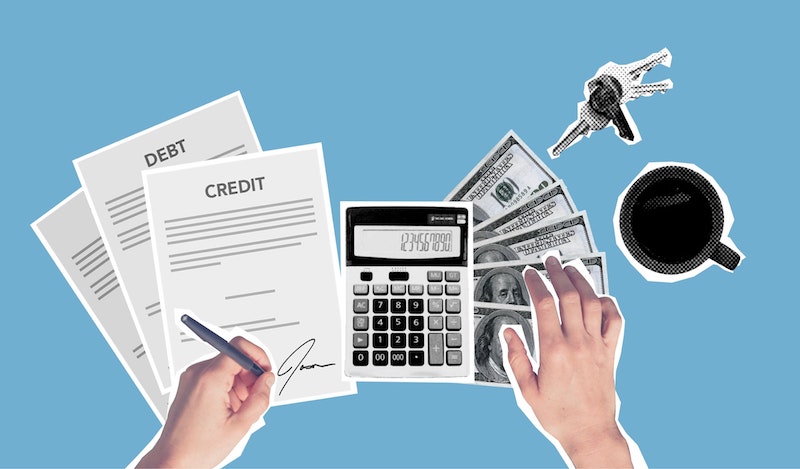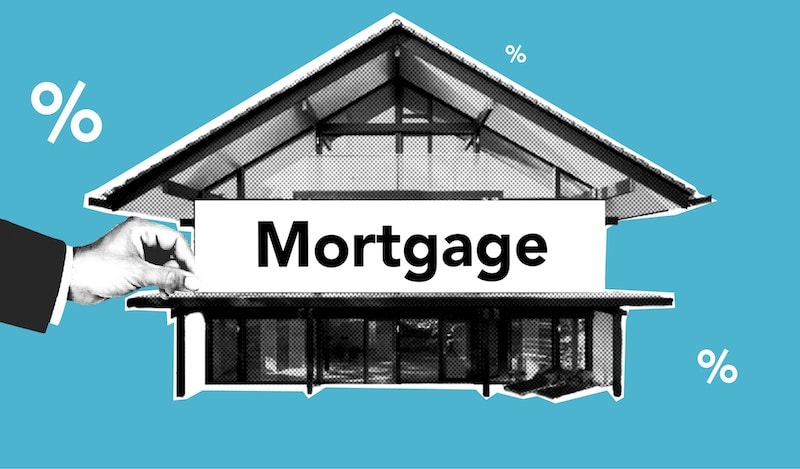Can You Get a Loan if You Are Unemployed?
If you are unemployed, you can still get a loan; however, there may be additional requirements that you will need to meet to demonstrate that you can be trusted to repay your loan.
Can You Get a Loan if You Have No Job?
When taking out a loan, the majority of lenders will need for you to prove that you have a regular income and that it exceeds a certain threshold.
Often, loans come with a minimum salary threshold and lenders will request to see incoming payments for a minimum of two years. However, there are exceptions.

It is still possible to get a loan while you are unemployed, however you will need to demonstrate that you can meet repayments. This includes demonstrating a good credit history.
There are specialist lenders available whose loans are especially designed for those with poor credit history or who are not in regular work. However, it is worth noting that these loans more often than not come with high interest rates which could soon lead to spiralling into debt.
Additionally, the types of lenders who offer loans to those who are unemployed tend to be smaller, less established lenders.
How Do You Qualify for a Loan When You Are Unemployed?
If you are applying for a loan and cannot prove employment, you will need to be able to demonstrate some source of income which could include savings. A good credit history will also be required. Regardless of whether you are unemployed by choice, such as taking retirement, or have lost your job, you will need to prove to any lender that you can make regular payments on time.
Can You Get a Loan if You Have No Income?
If you have no income, you can still take out a loan. However, the majority of no-income loans will come with higher interest rates and you will not be able to borrow as much money.

How Long Do You Have To Be at a Job To Get a Personal Loan?
Requirements for the length of time you have been at your job will vary depending on the specific lender and their criteria. Usually you will need to be able to prove income for at least six months to a year although some lenders will want proof of employment for a minimum of two or three years.
In exceptional cases, you may be able to apply for a personal loan even if you have not been at your job for a long time.
Can You Get a Loan if You Have Just Started a Job?
If you have just started a new job, you cannot demonstrate longevity in a job role and therefore your financial situation may be viewed as less stable by lenders. However, that being said, if you have not started your job yet, sometimes you can get approved for loans just with your offer letter.
Can You Get a Mortgage if You Are Unemployed?
There is no minimum income requirement for buying a home but qualifying a mortgage is far more difficult if you are unable to demonstrate regular income. If you are unemployed, you are a greater risk to lenders as you cannot guarantee that you will be earning enough per month to meet your monthly mortgage repayments.

In these cases, you will need to show a good debt-to-income ratio, good credit history and be able to put down a decent amount of down payment.
How To Demonstrate Eligibility if You Have No Income
In order to take out a loan when you are unemployed, you will still need to show a means of meeting repayments and a solid credit history.
If you are unable to prove employment, you will most likely need to share the following information:
- If you have missed any utility bill payments
- How much credit you currently have available
- If you have previously been declined for loans and how many times
- If you are on the electoral roll
Lenders will only accept loan applications for the unemployed if they can be sure that you are able to meet monthly repayments. Demonstrating that you are able to make payments on time and can manage debt in a responsible manner will make you more likely to qualify for a loan.
What Types of Loans Are Available for Unemployed People?
If you are unemployed, there are still different loan options available to you, including the following...
Secured loans: Secured loans require the borrower to put up a valuable possession as collateral, such as a house or car. This is a way of mitigating risk for the lender as they can repossess your property should you default the loan repayment.
Guarantor loans: Guarantor loans involve a relative or friend agreeing to pay back the remaining amount should the borrower default.
Personal loans: Personal loans do not require a guarantor or security but the majority of personal loan providers will not accept unemployed applicants as they can be seen as riskier borrowers. If you are approved for a personal loan while unemployed, it is likely to incur very high interest payments.
Should I Take Out a Loan if I Am Unemployed?
Taking out a loan when you are unemployed can give you quick access to money and could be hugely beneficial when covering unexpected expenses. One of the advantages of taking out a loan is that you are able to spend the money however you choose, unlike other forms of credit which may be more limiting.

Loans offer an element of flexibility in that you can choose how long you will spend repaying the loan. Additionally, it is a way to consolidate multiple outstanding debts into more manageable monthly payments.
If you have another source of income other than employment and are able to manage your budget effectively, there is no reason why meeting the repayments of a loan should not be possible.
However, it is important to remember that taking out a loan when you are unemployed will mean higher interest rates than if you were in employment. This means that if you miss repayments, it is far easier to enter a spiral of debt which is very difficult to come back from. Missing repayments can also have long-term negative impact on your credit, making you less likely to be able to take out a loan in the future.
Can I Get a Loan on Benefits?
Those on benefits may find it more difficult to get a loan, but there are still various options available if they are in need of funds.
Can I Borrow Money if I’m on Benefits?
If you are currently claiming benefits, this does not make you ineligible for a loan. The situation will vary between different lenders and based on the personal circumstances of the borrower, including how much they are looking to borrow and for how long, in addition to their financial situation.
Explore whether you can get a loan if you are unemployed.

The most important factor will be if the loan is affordable for the borrower. This means that lenders will most likely look at existing outgoings, including any outstanding debt to see if the individual will be able to meet their loan repayments on top of that.
Is It More Difficult To Get a Loan on Benefits?
It is generally harder to get a loan if you are receiving benefits as you will need to demonstrate to the lender that you are able to comfortably meet repayments. However, there are options available be it taking out a personal loan or looking to specific organisations, such as credit unions or local councils, which may be able to offer help.
What Loans Are Available for People on Benefits?
If you are currently receiving benefits, you will either be receiving one single payment (universal credit), or several payments under the old benefit system.
Regardless of which type of benefits you are receiving, you will be eligible to apply for a budgeting loan or budgeting advance from the government. These are no-interest loans meaning that you need only pay back what you borrow. This money is repaid from your benefit payments.

Depending on your personal situation, you may also be eligible for a loan from a credit union. They are often able to provide specialist loans for individuals with low-income.
There are a range of lenders available who are able to provide short-term loans for people on benefits. However, beware of extremely high interest rates and penalty fees if repayments are not met. Many of these companies try to target low-income individuals and trap them in a cycle of debt which is difficult to overcome.
What Funds Does the Government Offer?
Government loans offer both direct loans or guaranteed loans. With direct loans, the borrower is receiving money directly from a government agency and all loan repayments are payable to the government. For guaranteed loans, however, the money will be coming from a private government-approved lender.
If you are on Universal Credit, or are receiving other benefits, you may be eligible to apply for a Budgeting Advance or a Budgeting Loan
Advances of Benefit are a type of financial support that replaced the formerly available ‘Social Fund’. They can include short-term advances, budgeting advances or budgeting loans.
You might be able to apply for this kind of financial support if you are currently waiting for a decision on a benefit claim or are waiting to be paid but struggling financially. These loans are designed to help with the cost of essential items such as furniture, clothing, rent and other daily expenses.
You can apply for a Budgeting Loan if you have been on any of the following benefits for a minimum of 6 months:
- Pension Credit
- Income Support
- Income-related Employment and Support Allowance
- Income-based Jobseeker’s Allowance
These loans are interest-free and, depending on personal circumstances, will range from £100 to £812.
There are also short-term advances available for those who are struggling to meet payments before receiving their first benefit payment.
How Can You Get a Loan if You Are on Benefits?
If you are wanting to apply for a government loan whilst on benefits, you can access the gov.co.uk website, which will display all available options. Additionally, your local JobCentre could provide valuable information as well as contacting the universal credit helpline.

Once starting an application, you will need to meet certain criteria in order to get a loan. The first step will be assessing your personal circumstances and financial profile to make sure you can afford the loan.
You should only ever take out a loan if you can afford to repay it. However, in the case of emergency costs, a short-term loan may be a good option. Budgeting loans or budgeting advances given by the government tend to be the cheapest option as they are no-interest short-term loans.
What Alternatives Are Available if You Are on Benefits?
If you are having financial troubles, there are many different debt charities available to provide specific support. It could be that you are not currently receiving all the benefits you are entitled to. Resources such as Turn2Us have a free benefit checker to ensure that you are getting all the available support.
If you do decide to take out a loan and have doubts about your ability to meet the repayment plan, always speak to your lenders first. They may be able to help you by lowering the interest on your monthly payments.
Mortgage Rates at Highest Level for Almost 2 Years
It was announced this month that the US 30-year fixed-rate mortgage climbed to an average of 3.75% - the highest level since the beginning of the coronavirus pandemic.
The recent spike comes as the markets prepare for the Federal Reserve to take action in 2022 on interest rates, and cool off the demand.
Moreover, the UK’s Office for National Statistics showed UK house prices to have risen by 10% in the year to November 2021, up from 9.8% in the year to October. The cost of an average home in November stood at £271,000, up from £246,000 compared with the figure from 12 months earlier.
Key Points
- The average 30-year fixed mortgage rate increased to 3.75% - rates haven’t been this high since March 2020 — nearly two years ago.
- Despite the increase, mortgage rates are still historically low — and lower than pre-pandemic levels.
- Rising inflation has been cited by experts and the Fed as a major factor behind rising rates.
- While the Fed does not set mortgage rates, it does impact them with its monetary policies.
How Might Rising Mortgage Rates Affect You?
Simply put, the more rates rise – the more expensive it becomes to borrow. This will especially impact first-time buyers looking to purchase at home.
For example, if you were to act today at a 3.56% rate, you would pay about $188,592 in total interest on a $300,000 loan over 30 years. However, if you had done the same thing when interest rates were 2.72% earlier in the pandemic, you would have only paid roughly $139,186 - $49,406 less in total.
To mitigate this rate, you might look at remortgaging within a few years, which is not uncommon after 2,3 or 5 years.
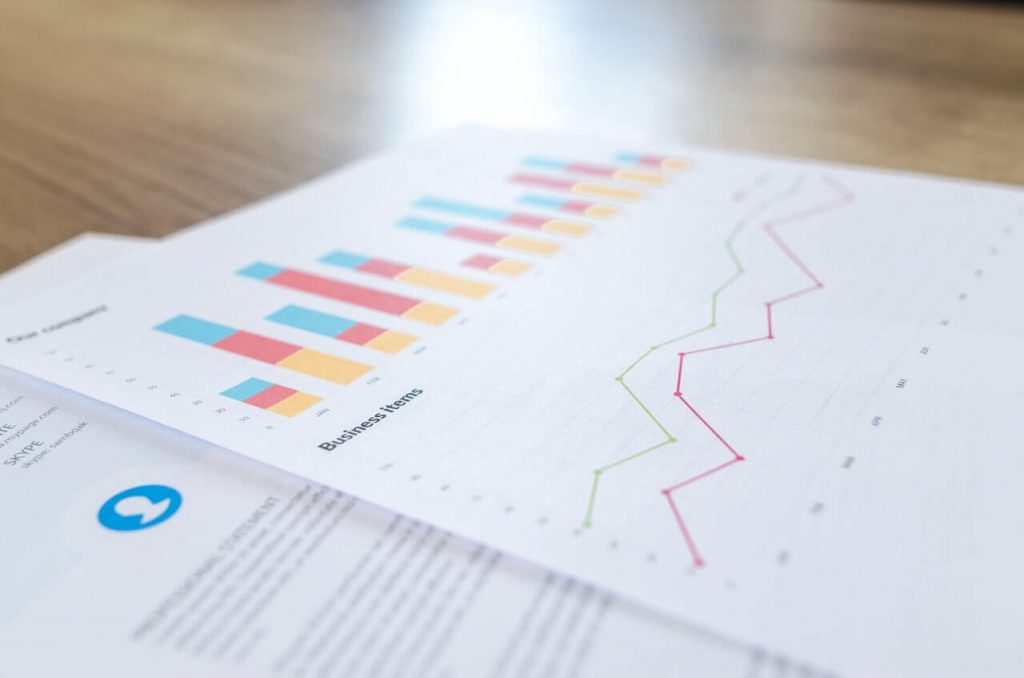
Mortgage rates in the US and UK in 2022 are the highest in over 2 years
Make Sure to Shop Around for the Right Mortgage
When you're looking for a mortgage, your starting point should be to go through a broker or multiple brokers, who are eagerly looking to help you get a pre-approval and find a competitive rate for you.
Importantly, mortgage providers are not just banks these days, but also all the private lenders and challenger banks who might offer more favourable terms and may only be available through brokers.
There are basic mortgages where you pay a 20% deposit and get a loan of around 80%, but depending on your circumstances, you can find interesting opportunities through Shared Ownership or Right To Buy - (see our guide on mortgages for first time buyers).
How You Can Secure a Low Interest Rate on Your Mortgage
Having a good deposit of at least 20% of the property value is a good starting point, but other factors include having a good credit score, stable income and employment.
There are some types of employment that are favoured over others, especially ones with good stability like being a doctor, lawyer, teacher or working in the public sector. If you are self-employed, this is absolutely fine to get a mortgage but you will usually need at least two years of accounts and be profitable.
Having a good credit score is important for your mortgage rate, with the better your score, the more likely you are to get a competitive rate.
You also want to avoid having too much debt. If you have lots of cars, credit cards and other financial obligations (school fees, memberships), this can limit the amount you can borrow.
So in addition to being a good candidate with a good credit score, low-debt and good income and employment can certainly help your ability to secure a low rate mortgage, whilst speaking to brokers and always comparing rates along the way!
What’s the Bottom Line?
Ultimately, when it comes to home buying, there are many factors that are out of your control - national mortgage rates being one of these.
However, you shouldn’t let this stop you from buying a new home or become a homeowner for the first time.
Ensuring that you have good credit and have saved enough capital to afford a decent-sized down-payment will help you in your mortgage application.
Can You Buy a House With No Job?
It is possible to buy a house if you have no job, but you will need to have other forms of income or savings and be able to effectively demonstrate that you can afford any home loans you want to take out.
Can You Get a Mortgage if You Are Unemployed?
If you are looking to take out a mortgage to buy your house, and you are currently unemployed, you may struggle. Lenders typically look at a borrower’s income or annual salary in order to assess how much money they are willing to loan. Within this, the majority of lenders will ask for a minimum income.
However, some mortgage providers are more flexible than others in how they define “income”. If this is the case, these lenders may accept savings accounts or even benefits as long as you can prove that your monthly income is sufficient to meet payments.
Most traditional banks and financial institutions will only accept full-time employment as a source of income.
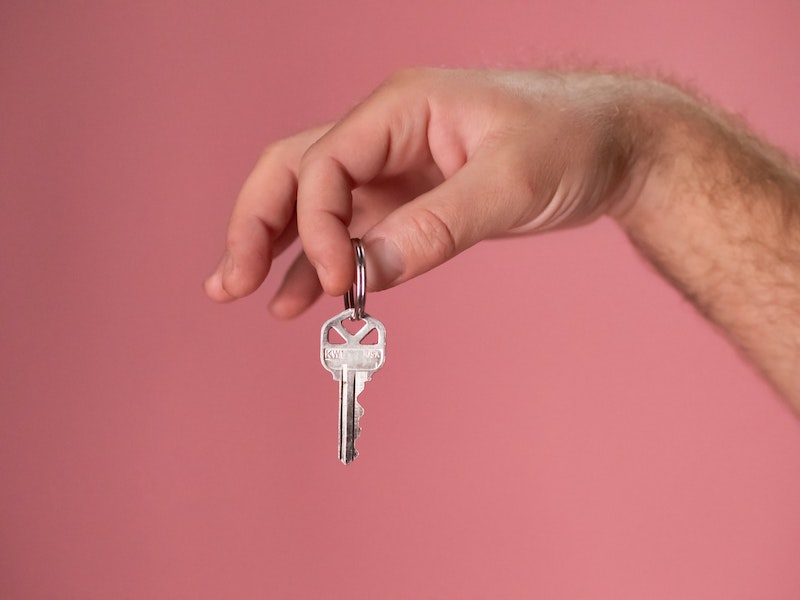
If you are unemployed, you will usually need to have a good credit history as well as be able to put down a decent amount of down payment in order to secure a mortgage.
Often, no-income loans, including mortgages, will come with higher interest rates and you will not be able to borrow as much money.
Can You Get a Mortgage When on Universal Credit?
If you are on Universal Credit, you may be able to get assistance with mortgage payments but only if you have been claiming it for more than 39 weeks consistently. However, if you are on Universal Credit at the time of applying for a mortgage, it may affect your eligibility and likeliness of being approved.
How Do You Qualify for a Mortgage When You Are Unemployed?
If you are applying for a mortgage and cannot prove employment, you will need to be able to demonstrate some source of regular income which could include savings. Lenders will also require a good credit history. Regardless of whether you are unemployed by choice, such as taking retirement, or have lost your job, you will need to prove to any lender that you can make regular payments on time.

One way that you may be able to qualify for a mortgage whilst unemployed is by having a co-signer; this might be a relative, spouse or friend. This co-signer will need to be employed or have a high net worth. Co-signers make the mortgage less of a risk for the lender as they are securing the loan with their income and credit history.
Is It Possible To Get a Mortgage on Benefits?
If you are currently receiving benefits, it is unlikely that your lender can use your unemployment income in order to qualify for a home loan. More often than not, lenders require you to prove a minimum of two years of income from a reliable source.
However, if you are receiving benefits it may still be possible to get a mortgage under the right circumstances. This will be contingent on many variables including credit history and alternative sources of income.
If you have a regular source of income, assets or savings, in addition to the money you are receiving through benefits, you are more likely to have your application approved.
For lenders, their biggest concern is whether or not a borrower is able to meet their monthly mortgage obligations. Thus, if the benefits are sufficient to meet payments, and borrowers can demonstrate an otherwise satisfactory financial profile, lenders may indeed approve the mortgage.
Before putting in a loan application, you should check whether the lender accepts benefits as a valid source of income as an unsuccessful application could negatively impact your credit score. Working with a mortgage advisor could help you find the right lender and best deal for your personal circumstances.
Which Benefits Are Accepted by Mortgage Lenders?
Not all benefits will be accepted by mortgage providers and eligibility may vary between lenders. Here are just some of the benefits that mortgage lenders tend to accept:
- Attendance Allowance benefit
- Carer’s Allowance benefit
- Child’s benefit
- Disability Living Allowance (DLA)
- Maternity Allowance benefit
- Pension Credit benefit
- Widow’s Pension benefit
- Working tax credit benefit
Within this, lenders may accept certain benefits but only as a proportion of income rather than as the full amount of proof of income. Certain lenders may have additional specific criteria that you will need to meet before they accept your benefit.
How Can I Demonstrate Eligibility for a Mortgage if I Have No Job?
In order to take out a loan when you are unemployed, you will still need to demonstrate how you will be able to meet repayments and show lenders that you have a solid credit history.

If you are unable to prove employment, you will most likely need to share the following information:
- If you have missed any utility bill payments
- How much credit you currently have available
- If you have previously been declined for loans and how many times
- If you are on the electoral roll
Lenders will only accept mortgage applications for the unemployed if they can be sure that you are able to meet monthly repayments. Demonstrating that you are able to make payments on time and can manage debt in a responsible manner will make you more likely to qualify for a loan.
Can I Buy a House Without a Mortgage if I Have No Job?
Although mortgages are the most common way to purchase a home, there are other ways to purchase a house without the need to take out a loan, including the following...
Cash purchase: If you are fortunate enough to have enough funds available to purchase a house outright, you may be able to save enough for a cash purchase. This is especially possible if you are a two-income household and can live comfortably off a single income for a few years.
In the case that you have no job, you will need substantial savings in order to afford this option or will need to be buying a house with someone who has enough income to support you both for the foreseeable future.
Sell your home to purchase another one: If you are already a homeowner and want to downsize or change living situations, you can sell your existing property and use the profit to purchase another home. This is only really a possibility if you have plenty of equity in your current home.
This can be a great option for those looking to downsize or move to a more cost-effective area where you could get more for your money.
Use an investor: If you are looking to buy a house or property as an investment property, you may find it difficult to secure a mortgage, especially if you have no job.
Getting an investor to cover the expense of buying and renovating the home can be a good option. Many investors will be able to provide cash up front in order to buy the property and pay for any home improvements. Once the property is flipped and sold, you will split the proceeds with the investor.
How Much Does a Home Office Add to a House?
As so many people were forced to work from home during the pandemic, the existence of home offices multiplied greatly.
Although working from home was on the rise anyway before the pandemic, its existence in homes accelerated enormously during the last two years. With nearly half of all working people in the UK working from home in 2021, home offices have become a staple of today’s houses.
With the ability to have a stable internet connection anywhere in the world and the existence of top quality team communication software and collaboration tools, you do not need to be in the same office anymore to communicate as a team effectively.
That is why building a home office is becoming more popular with more people than ever before. Whether turning a spare bedroom into a dedicated office, renovating the garage or changing the garden shed, home offices can be built anywhere; easily and effectively and for a potentially reasonable cost.
Not only do home offices save your sanity whilst all the family are in the house together, they can have long-term benefits to the resale value of your home.
Does a Home Office Add Value to A House?
On average adding a home office to your house can increase the sale on price of your house by 5-10%. There are other home improvements too, which can add different levels of value to a house, including:
- Loft conversions
- Redecorating
- Double glazing
- Landscape gardening
- Home insulation
The amount that a home office, much like other home improvements and renovations adds to your house depends on the location of the office space, the amount of resources you dedicate to it and how it fits in with the rest of the house.
Why Does a Home Office Add Value?
A home office can feasibly add value to your house because it provides a dedicated work space for the new owners to use for their office.
Although many people are still working from home for the majority of the time, new home owners will not have to dedicate time to creating an office space and instead use the one that you have already built. Alternatively, the home office can be converted into something else, for example, the space can be converted into:
- A home gym
- A utility room
- Storage space
- A guest suite (subject to local planning permission)
Where Should My Home Office Go?
A home office can be built and situated in a variety of different parts of the property which may include:
Spare Bedroom – A common place for home offices to be placed is in a spare bedroom in the house. This, however, will not have much effect, positively or negatively on the value of your house.
This is simply seen as another bedroom regardless of a reconfiguration into a home office and therefore if you want an easy home office rebuild, a spare bedroom is great but it will not add much if anything to the resale value of the house.
Unused Space – Unused spaces within the house are the best places to put your home office if you are looking to add value to the home.
Places such as your loft, your garage or even your conservatory are great places to add a home office. How much this increases your home value depends on a number of factors. However, when looking to sell your property certainly adding a home office as a loft conversion can raise the price of your house up to 8%.
Garden Shed or Extensions – If neither of these options are available then it might be possible to add a home office through outside of the home itself.
One way that you can do this is by converting your garden shed into a home office. Although it may cost a little bit more, having a garden home office can increase your price of property up to 5% allowing you to cover the costs of building it and more. It is always important to check whether you need planning permission in order to do this. You will need permission to build an extension and they can cost a lot just for a home office, but if you need more space an extension is guaranteed to increase the value of your home.
Can You Add Stamp Duty to a Mortgage?
It is possible to add Stamp Duty to a mortgage by taking out a larger mortgage; however, this may not be advisable as it could impact your loan to value ratio and increase the rate of interest paid.
What Is Stamp Duty and How Does It Work?
Stamp Duty is a type of tax incurred when buying a property or piece of land in the UK. You will pay a different amount of Stamp Duty depending on the purchase price of the property and the property type (i.e. is it residential or not). If you are a first-time buyer, this will also affect the amount of Stamp Duty you will pay.
How Much Is Stamp Duty?
Although there was formerly a Stamp Duty holiday, a government implemented initiative introduced after the impact of the coronavirus pandemic, this holiday ended on 1st October 2021.
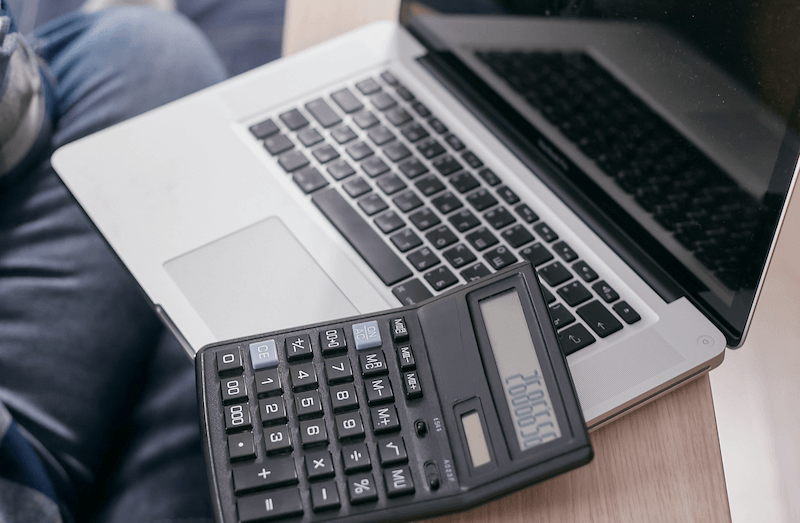
Since the holiday ended, any purchases over £125,000 will incur a Stamp Duty with a rate of 2% or more on their property depending on what Stamp Duty band they fall within.
The current Stamp Duty bands are as follows:
- £0 - £125,000 – 0%
- £125,001 - £250,000 – 2%
- £250,001 - £925,000 – 5%
- £925,001 - £1.5million – 10%
- Over £1.5million – 12%
How Is Stamp Duty Paid?
Typically, Stamp Duty is paid by your solicitor on your behalf. This is done as part of the home-buying process, and the home buyer is always the one ultimately paying for the Stamp Duty.
Stamp duty must be paid within fourteen days of buying a property or piece of land.
Can You Add Stamp Duty to a Mortgage?
Yes, in certain circumstances you can add Stamp Duty to your mortgage. However, in general, when you buy a property the only buying cost that tends to be added to your mortgage is the arrangement fee.
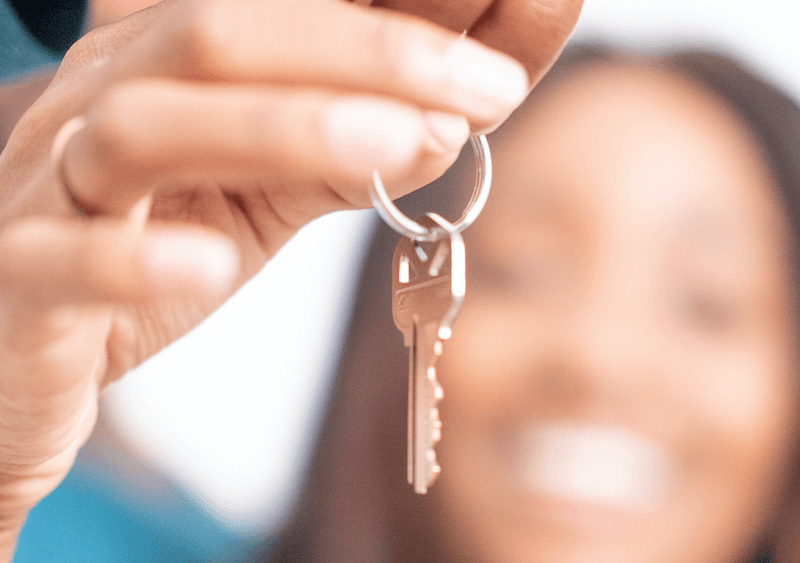
That being said, because Stamp Duty is paid after completion on a property, it would be possible to add this to your mortgage. This will depend on whether you can afford to take out a slightly bigger mortgage in order to factor the additional Stamp Duty.
However, the danger of adding Stamp Duty to your mortgage is that this money will also accrue interest over the length of the mortgage term. It may even push you into a higher interest rate bracket. Not only that, but it will affect your loan to value ratio. If you apply for more money, but the amount of deposit you put down is the same, your loan to value ratio will be bigger.
How Can I Add Stamp Duty to a Mortgage?
To get a mortgage to cover the cost of Stamp Duty, you will generally need to apply for a larger loan. However, the danger of this is potentially paying more in the long-run as you increase your monthly repayments and the amount of interest you will pay.
Before deciding whether to add Stamp Duty to a mortgage, it's important to consider how this will impact your mortgage overall, and how this could add to the amount you pay back.
Should I Add Stamp Duty to My Mortgage?
Adding Stamp Duty to your mortgage will increase the overall amount that you need to borrow, and subsequently pay interest on. If you add Stamp Duty to your purchase, the interest rate of the loan will increase and you will also increase your loan to value ratio which could cause you to lose more money in the long run.

Can Your Mortgage Cover Stamp Duty if You Are a First-Time Buyer?
The rate of Stamp Duty will be impacted depending on whether you are a first-time buyer or not, with first-time buyers typically exempt from paying Stamp Duty. For first-time buyers in England and Northern Ireland, there is no need to pay Stamp Duty on the first £300,000 of the property if it is valued at less than £500,000.
What Other Ways Are There To Pay Stamp Duty?
If you want to pay off your Stamp Duty, and are working with a solicitor or conveyancer to help with the purchase, you can usually pay the Stamp Duty directly for them and they can organise everything for you. You can also choose to pay HMRC directly and cut out the middle man.

What you cannot do is pay off your Stamp Duty in instalments; it will need to be paid in full. You also are not able to pay your Stamp Duty on a credit card due to restrictions brought in back in 2018.
Can Mortgage Offers Be Extended?
When you take out a mortgage, there is an agreed mortgage term between lender and borrower; however, this can be extended depending on the circumstances.
Taking out a mortgage can be a long and confusing process for many first-time buyers. Here, Octagon Capital explores exactly what your mortgage offer entails, and if possible, how to extend this past the initially agreed mortgage term.
What Is a Mortgage Offer?
A mortgage offer is confirmation from the mortgage provider that your application has been checked and approved.
You will only receive this confirmation once you have completed the application process fully and provided all the required financial documentation and information about the property you wish to purchase - this can include the following:
- Proof of ID
- Proof of income
- Proof you can afford repayments on the mortgage
- A valuation report on the property
Once you have been given a mortgage offer by the provider, this offer will be valid for a set amount of time - which is typically anything around 3 - 6 months.
How Long Do Mortgage Offers Last?
Mortgage offers are usually valid between 3 - 6 months, depending on the mortgage provider. Mortgage offers will only last for a set period of time, this period typically starting from the moment the offer is issued to the prospective borrower. However, lenders can also start the clock on this offer from the date you first applied for the mortgage.
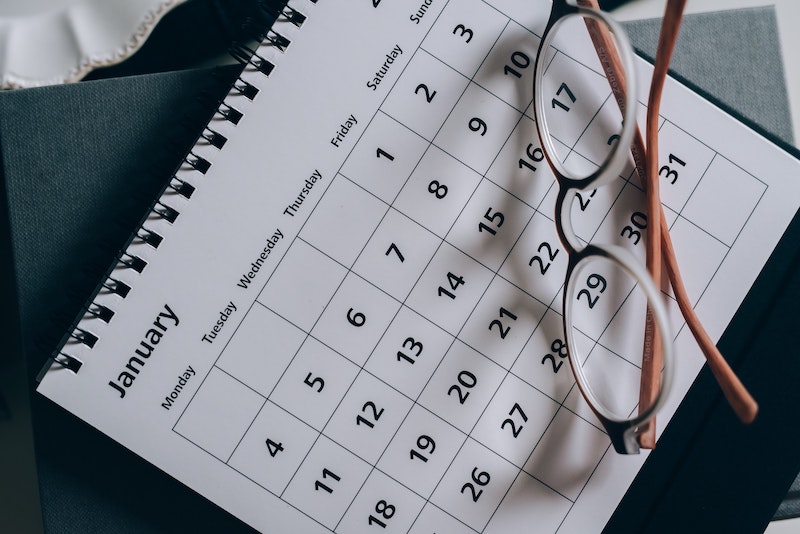
It's important to know the date your mortgage offer expires, and make sure as best you can that this works for you and fits around your schedule.
Can I Get a Mortgage Offer Extended?
If you are concerned that the house purchase will not be completed within the time frame of the mortgage offer, always speak to your lender first to explain your concerns. Delays are part and parcel of the housing market so lenders should understand if there are any unexpected events that will affect the timeline of purchase. However, the lender is not obliged to extend or re-offer the mortgage.
Depending on the circumstances, it is possible that your lender can offer you a mortgage offer extension. This may be due to personal circumstances, an issue within the housing chain of this particular transaction or at a more global level, such as the coronavirus pandemic.
For example, due to the coronavirus pandemic, many lenders opted to extend their mortgage offers by as much as three months across the UK. Many banks continue to offer extensions so it is always worth checking with your specific provider. Generally speaking, mortgage extensions are reviewed on a case-by-case basis.
What Requirements Are There for a Mortgage Extension?
If you are looking to get an extension on your mortgage offer, your lender will most likely want to see any recent bank statements and payslips. This is in order to check that your financial situation has not changed. Lenders will need to ensure that you are still able to pay back the agreed loan.
Additionally, lenders will require at least a few weeks’ notice in order to see if it is possible to extend your mortgage offer. This will differ between lenders so you will need to check notice requirements directly with your lender.
How Long Can a Mortgage Offer Be Extended?
The length of time that a mortgage offer can be extended will depend on the lender and will usually be evaluated based on an individual case. Lenders will typically take into account the circumstances of the property itself as well as the financial profile of the borrower.

In general, mortgage extensions could be up to a month or more, depending on the situation. For example, one of the UK’s biggest mortgage providers, Nationwide Building Society offers extensions of up to 45 days for those purchasing new-builds and who have come into problems with timings.
How Do I Request a Mortgage Extension?
In order to request a mortgage extension, you have to speak directly to your mortgage lender. The majority of lenders will require at least a few weeks’ notice before extending the mortgage and will need to evaluate many different factors. Lenders are not obliged to provide a mortgage extension, however if your financial situation is unchanged since your initial application, it is unlikely that there will be any issues. The typical mortgage extension will be a month or more.
What Happens if My Mortgage Offer Expires After Exchange?
If your mortgage offer expires between exchange and completion, you should contact your mortgage lender as soon as possible to request an extension.

Typically, your mortgage lender will let you extend your mortgage offer. However, when needed it's important to try and apply for an extension as early as you can, just in case your lender doesn't allow you to extend - giving you more time to make other arrangements.
If you're not allowed to extend your mortgage offer, you may then need to create a whole new mortgage application. This can be done either with the mortgage lender you've initially gone with or another one that's more suitable for your situation.
Can Banks Refuse a Mortgage After Exchange?
Banks and other mortgage providers have the right to refuse to offer a mortgage after the exchange of contracts has happened and, indeed, can withdraw a mortgage application at any point before completion if they have grounds to do so.
Can Loans Affect a Mortgage?
There's so much to consider when applying for a mortgage that it can seem like there's too much to think about. This can especially be the case if you have open loans, and don't know how, or if, they will impact your mortgage application.
We've summed up if having a loan open can impact your mortgage application, and what you need to know about having loans and mortgages at the same time. FInd out more in our Octagon Capital blog:
What is a Personal Loan?
A personal loan is an amount of money that you borrow, and pay back over a set period of time. Sometimes known as unsecured loans, personal loans are not secured against any of your assets such as your home.
People choose to take out personal loans for a wide variety of reasons, ranging from help with the rising cost of living, to go on holiday, to fund home improvements, and amongst other things, to pay for vehicle repairs. It's absolutely essential to remember that you should only ever borrow what you know you can afford to pay back, as missed repayments can damage your credit score and result in late fees.

How Do Personal Loans Affect Mortgage Applications?
Mortgage lenders will look at any existing debts when deciding whether or not to approve a mortgage and how much they are willing to lend the borrower.
Before approving a mortgage, lenders will always assess a lender’s credit score in order to determine whether they can meet monthly mortgage repayments.

Therefore any existing debt, including personal loans, will impact a lender’s decision. However, this is not necessarily a bad thing.
If you have existing personal loans but can prove that you are able to reliably meet payment obligations, this could support your case as a reliable borrower. The most important factor will be showing that your income is greater than your outgoing payments, including any loans; this is known as your debt-to-income ratio.
When Will Applying for Loans Negatively Impact Mortgage Affordability?
The timing of your loans can have a negative impact on your mortgage. For example, if you take out a personal loan in the three months leading up to applying for a mortgage, this could negatively impact your credit score and subsequently your chances of being approved for a mortgage.
In general, experts recommend not taking out a personal loan in the six months before applying for a mortgage.
The following loans will impact your credit score and could, therefore, impact your chances of getting a mortgage:
- Personal loan
- Credit card
- Car finance
- Overdraft
- Utility contract
- Mobile phone contract
Applying for any of the following loans will register a mark on your file:
- Personal loan
- Car finance
- Credit card
- Overdraft
- Mobile phone contract
- Utility contract
You should also make sure that any loan searches do not impact your credit rating; the more searches you have with a short amount of time, the less likely you are to be approved for a mortgage.
Can You Take Out a Mortgage if You Have a Personal Loan?
If you have a personal loan, you will still be able to take out a mortgage. However, the most important factor from a lender’s perspective is mortgage affordability and whether a borrower can afford to take out a mortgage on top of any existing debts.

As a borrower with existing loans, it will be your responsibility to prove to the lender that you can repay all of your debts and that you will not be a risk to the lender.
Working with a mortgage broker or mortgage advisor can help you assess the best option for your personal circumstances. These market experts will also be able to recommend lenders who can understand your loan situation and who will be more likely to approve your mortgage application without long-term negative impact on your credit rating.
Could My Personal Loan Improve My Mortgage Application?
In the right circumstances, existing personal loans may even improve your mortgage application.
Having a personal loan which is paid back on time can go a long way in boosting your credit rating and proving that you are a responsible borrower. The more of your loan that you are able to repay before applying for a mortgage, the better you will look to potential mortgage providers.
You can also be strategic but borrowing money through a personal loan and putting the cash in a high interest savings account. This means that you have accrued extra funds which can, in turn, be put forward as a higher mortgage deposit.
Can You Take Out a Loan After You Have a Mortgage?
If you have just received a mortgage approval, it is not an opportune moment to take out a loan. This includes applying for any credit cards or additional finance.
When applying for a loan, you will need to be approved by the lender before fully securing the mortgage. As part of the application, the lender will carry out in-depth credit checks. Therefore, if you take out any further loans or credit after the approval process, this will affect your existing application and can be a red flag for lenders. If the lender believes that this new credit can impact your mortgage repayment, they could even withdraw the mortgage offer.

Even after receiving the mortgage offer, you should not take on additional debt. If you know that you may want to take out further credit after the mortgage application process, you should talk to your lender beforehand to understand the implications and how it may affect your application.
Once you have completed on your mortgage, you may find that you incur extra costs, such as home improvements or furniture, which may require additional funds; thus, you may find yourself in need of credit or a personal loan.
At this stage, there is no real reason why you should not be able to take out a personal loan as long as you can afford the repayments. However, the longer you wait between your mortgage completion and taking out additional credit, the better.
As an alternative, many homeware stores offer 0% finance deals meaning that you may be able to afford these payments without the need of taking out additional lines of credit with interest rates.
Can I Get a Second Mortgage?
If you are looking to buy a second property, applying for a second mortgage can be a good idea. The process is relatively straightforward but you will need to demonstrate that you can meet payments for the second mortgage in addition to your other outgoing payments.
What Is a Second Mortgage?
A second mortgage is a separate mortgage that is taken out on a separate property, leaving the borrower to pay off two mortgages at the same time.
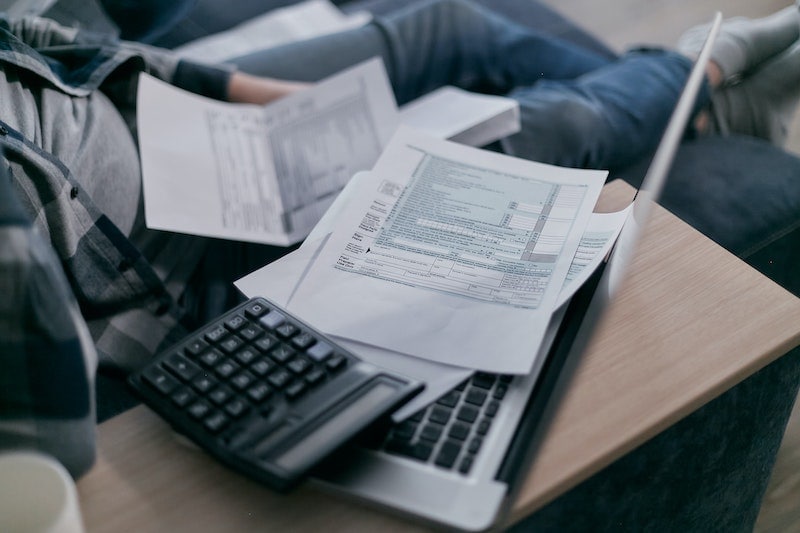
Like a standard mortgage, a second mortgage on a second property will also be a long-term loan in the borrower’s name and held against the property you are trying to buy.
Second mortgages can be used for second properties, a buy-to-let property or a holiday home.
Is It Possible To Have Two Mortgages?
For those looking to buy a second property, be it to rent out or use as a holiday home, they may consider getting a second mortgage. It is possible to have two mortgages at one time.
However, getting a second mortgage can sometimes be more difficult than getting your first mortgage. Banks or financial institutions will often have stricter affordability checks and they will need to assure that you are able to meet payments of both mortgages at the same time, in addition to any other monthly outgoings.
How Is the Process for Getting a Second Mortgage Different?
The process for applying for a second mortgage is more or less identical but there may be stricter affordability checks to make sure you can undergo the strain of paying off two mortgages at the same time.
Is a Remortgage the Same as a Second Mortgage?
A second mortgage is different from remortgaging. When you remortgage, you are either switching your current mortgage deal or switching mortgage lenders. This is usually to save money on the off chance that you find a better mortgage deal.
What Is the Difference Between a Second Mortgage and a Second Charge Mortgage?
A second charge mortgage is a long-term loan taken out to buy a second property but it is secured on the first property. Thus, the new property is secured on the original property. In the case of defaulted payment, second charge mortgages come second to the first charge mortgage.

Usually, in order to take out a second charge mortgage, the borrower will need to have a reasonable amount of equity in a property. This can include the percentage of your existing mortgage that you have already paid off plus any increases in the property’s market value.
Because the property is acting as security, the affordability checks tend to be less strict than for a second mortgage because the loan is less risky for the lender.
Second mortgages, on the other hand, are brand new mortgages secured by a brand new property.
Is It More Difficult To Get a Mortgage if You Already Have One?
Getting a second mortgage is a fairly straightforward process although lenders may be more thorough in their affordability checks. Usually, you will need to demonstrate sufficient equity in your existing home.
It is worth noting that there are usually additional fees incurred if you need to change the status of the mortgage on your existing property.
How Much Can I Borrow for a Second Mortgage?
Like your first mortgage, the amount that you are able to borrow for your second mortgage is likely to be based on your salary, credit history and the amount of equity you have.
You will only be able to borrow against the equity that you already have rather than the full value of the house that you are paying off in your first mortgage.
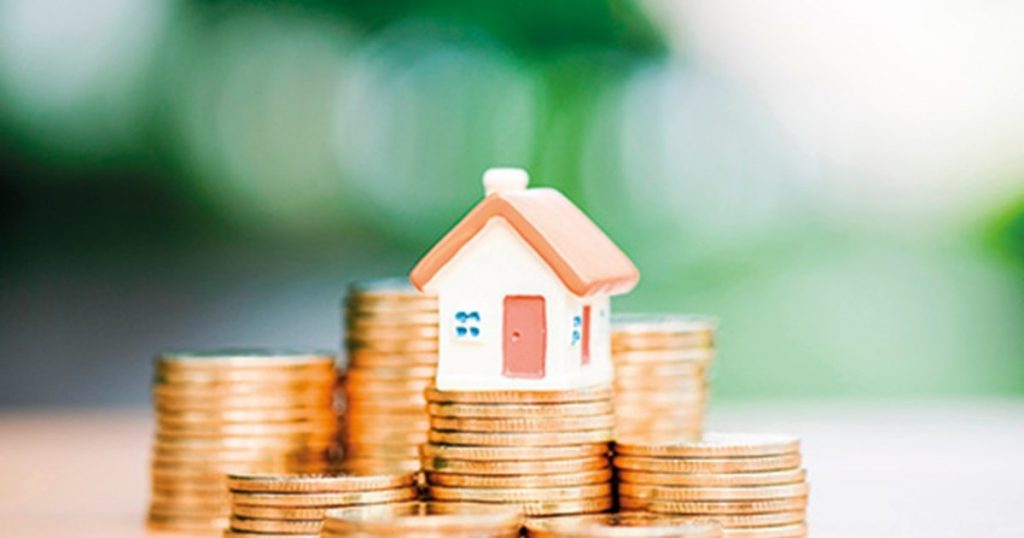
The better your financial profile, the more likely you are to receive a bigger second mortgage. Thus, a second mortgage may be a good option for those who have already repaid a big chunk of their first mortgage or if the value of your first property has increased substantially due to home improvements or if the area has gone up in value.
Should I Take Out a Second Mortgage?
There are definite advantages to taking out a second mortgage for those looking to buy a second property. By keeping your new mortgage separate from your existing mortgage, you are ensuring that your current home is not at any direct risk. Additionally, if you can afford the repayments, second mortgages can be a cheaper option than a second charge mortgage or a secured loan.
However, taking out a second mortgage can be expensive. Not only will you be paying off two mortgages at once, you will need to have money to pay a second deposit. Additionally, it may be more difficult to get a second mortgage due to the stricter affordability checks.
Things To Consider Before Applying for a Second Mortgage
If you are intending to apply for a second mortgage, there are certain factors you should take into account.
- Reduce your spending - before applying for a second mortgage, cutting back on your spending (including subscriptions and extra bills) can be a good way of improving your financial profile.
- Affordability - make sure that your income can cover the cost of paying for two mortgages over a long period of time in addition to any other financial obligations.
- Paying off your first mortgage - if you are able to, try to pay off as much of your first mortgage as possible before applying for a second mortgage.
- Evidence - prepare proof to show that your income is able to cover two concurrent mortgages.
- Shop around - compare different mortgages to make sure you are getting the best deal available for your circumstances.
Can a Student Get a Mortgage?
Students looking to take out a mortgage for a property are able to do so but will need to consider certain factors including income stream, which lenders are able to provide mortgages and whether the option of a guarantor is available.
Is It Possible for a Student To Get a Mortgage?
You can get a mortgage as a student and there are many providers across the UK willing to offer mortgages to students aged 18 or over. However, you should always consider your financial situation and how a mortgage may impact this.

In general, you will need to demonstrate an exemplary credit score, be able to show a source of income or employment, provide a down payment and show a low debt-to-income ratio. You may also need a co-signer or guarantor.
Those who have received an early inheritance from relatives may benefit from investing these funds into a mortgage. Additionally, those who are studying at a later stage in life (such as postgraduate or mature students) may have access to a greater amount of savings to put towards a mortgage.
Am I Eligible for a Student Mortgage?
In order to qualify for a student mortgage, you will need to meet certain criteria. The two key criteria are the following:
- Down payment - the higher the deposit that you are able to put down on a property, the more likely you are to find a lender who is able to approve your mortgage application. For this reason, it might be better to save for longer in order to have a larger deposit amount.
- Credit history - those with a better credit history will find it easier to get approved for a mortgage. It is possible that as a student you do not have a credit history; if this is the case, there are different ways you can improve your credit before making a mortgage application.
Can I Get a Student Mortgage With a Guarantor?
Applying for a mortgage with a guarantor will mean that the mortgage is more likely to be approved. However, you will need to adhere to certain guidelines. Typically, a guarantor will need to meet the following criteria:
- They are a legal guardian or direct family member
- They are a property owner
- They are a UK resident

In the case of some lenders, there may be a maximum age for the guarantor which tends to be around 75-80 years old.
Depending on the lender, there may also be a minimum deposit requirement which is usually around 15% of the property value. However, in some cases there are lower-deposit mortgages available.
Who Can Provide Student Mortgages?
There are many student mortgage providers across the UK with some of the country’s biggest financial institutions offering suitable mortgage products. Big name banks such as Halifax, Nationwide, Santander, Barclays and Virgin Money all offer student mortgages, just to name a few.
Working with a mortgage broker can help you find the best mortgage to suit your personal circumstances and could also help you to find some of the most competitive deals on the market.
Will My Student Loan Impact My Mortgage?
In some situations, your student loan may impact your eligibility for a mortgage application. However, the most important thing is demonstrating that you have a good financial track record and have sufficient income to meet repayments. Additionally, having a guarantor will make it far easier to apply for a mortgage.
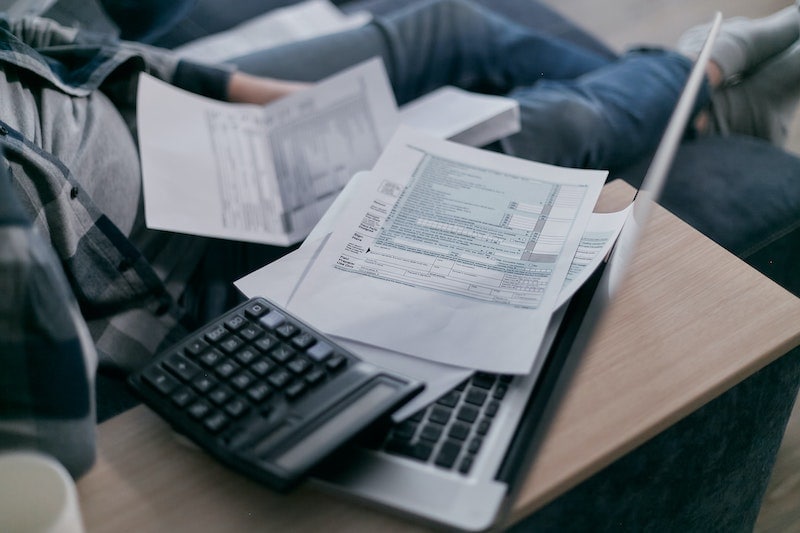
If you are concerned about your student loans, or any other type of loan impacting your mortgage, there are certain things you can do to improve your chances. For example, paying off any outstanding credit card debts can help to improve your credit rating. Additionally, being able to offer a higher deposit (using savings or inheritance) can strengthen your case. Finally, the stronger your guarantor’s financial profile, the higher your chances are of being approved for a loan.
Should I Get a Student Mortgage?
There are many advantages to taking out a student mortgage. As with any type of mortgage, entering the property ladder is a life changing step that can benefit you for years to come; getting on the property ladder early will give you a great head start in life.
Depending on where you are looking to buy, a monthly mortgage repayment could work out to be far cheaper than rent and save you money in the long run.
Becoming a home-owner has great potential for the future. For example, if your property increases in value, you could even make money on it in the future either through reselling or charging rent if you choose a buy-for-uni mortgage.
However, buying a property is not a decision that should be rushed into. Becoming a property owner is a big commitment; although you will have flexibility after you finish your studies, for example renting out the property or selling it, you will need to think about this before entering a mortgage agreement.
Additionally, owning a property comes with a great level of responsibility and you will need to keep up not only with your mortgage payments but also things such as maintenance and repairs.
There is an element of risk incurred when using a guarantor for your mortgage; if you are unable to make your monthly mortgage repayments for any reason, the guarantor could risk losing their home.
